Daniel Evans and Julia Tully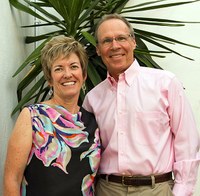
Daniel Evans and Julia Tully, a well-traveled husband-and-wife team who met in the Peace Corps, have dedicated their lives to international development, conservation, and volunteerism. They are being honored among “Outstanding Alumni” with a 2011 CA&ES Award of Distinction.
Evans volunteered for the Peace Corps after earning a bachelor’s degree at Whitman College. Assigned to the Dominican Republic, he met fellow volunteer Julia Tully from Michigan. They married in 1980 and moved to the Comoros Islands, off the coast of Madagascar, where Evans worked as a pest control specialist in connection with his UC Davis master’s degree in international agricultural development (IAD). He also earned a master’s degree in ecology and a doctoral degree in ecology studying decision making among small-scale farmers in Ecuador. Tully also earned a master’s degree in IAD, focusing on community health, nutrition, and lactation. With pre-school daughters Mara and Sierra, they moved in 1986 to Ecuador so Evans could complete his dissertation and then three years later moved to the Galapagos Islands, where he worked as executive director of the Charles Darwin Research Station.
Evans and Tully returned to California in 1992 when Evans became executive director of the Point Reyes Bird Observatory. Wanting to take their children overseas again, they moved in 1999 to Nairobi, Kenya. Evans focused on conservation and food security issues with the U.S. Agency for International Development (USAID) and Tully worked as an information analyst in the agency’s Office of U.S. Foreign Disaster Assistance. In 2002 they moved to Mexico City, where Evans became a USAID team leader for economic growth and Tully worked in public affairs at the U.S. embassy.
Wishing to give back to the Peace Corps and to promote volunteerism, Evans applied to work as a country director in 2008. He was assigned to Guinea, in West Africa, to help rebuild the program after its suspension the previous year. Tully also worked as a human rights officer for the U.S. embassy. Intense political conflict in Guinea led to their evacuation in September 2009 after a complete breakdown in the rule of law. In 2010 Evans was assigned as the director of the Peace Corps in Mexico, where he currently supports 85 volunteers working in technology transfer and natural resource management. Having happily returned to Mexico, the couple now lives in Queretaro where they plan to retire—someday.
Dan Flynn
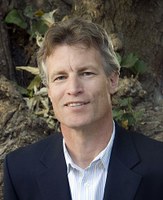
Dan Flynn, executive director of the UC Davis Olive Center, has overseen the rapid growth and development of the center into an internationally known program for olive research and education. He is being honored as “Outstanding Staff” with a 2011 CA&ES Award of Distinction.
Flynn established the center in 2008. It is the only one of its kind in North America. As administrator for the center, he oversees strategy, industry networking, revenue generation, the UC Davis olive oil program, and public education programs. The center’s core assets are the 30 expert faculty members, extension specialists, and farm advisors who provide an interdisciplinary resource for olive growers and processors.
The center has delivered or secured funding for 38 projects valued at more than $1.4 million. Under Flynn’s leadership, the center has tripled the number of UC Davis educational events for olive growers and processors, established an internationally accredited olive oil sensory panel and a chemistry research laboratory, planted campus olive orchards, and consulted on three successful industry-sponsored legislative measures. The center’s work has been reported internationally in more than 1,000 media outlets. It funds operations through research and education activities, as well as from sales of olive oil, table olives, and skin-care products. Flynn says the mission of the olive center is “to do for olives what UC Davis did for California wine.”
Flynn earned a bachelor’s degree in sociology at UC Santa Barbara and a master’s degree from Rutgers University. He draws on many years experience working in government in leading the UC Davis Olive Center. Flynn worked as a consultant for the California legislature (1985–2004), as an analyst with the Little Hoover Commission and the California Department of Social Services, and as executive director for a senate committee on cost control in state government. In 2004, Flynn began managing a certified organic five-acre cherry and apple farm in the Sierra Nevada foothills. That year he also wrote the feasibility study for the UC Davis Olive Center. In 2005 the program got under way and Flynn began managing the harvest, overseeing the extra virgin olive oil production, and developing marketing strategy.
Shawn Harrison
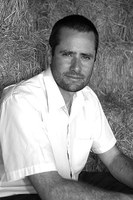
Shawn Harrison, executive director of the Soil Born Farm Urban Agriculture Project, is an urban farming pioneer whose commitment to sustainable agriculture and healthy food is touching thousands of people in the Sacramento region. He is being honored as “Outstanding Young Alumnus” with a 2011 CA&ES Award of Distinction.
Harrison earned a master’s degree in international agricultural development at UC Davis in 2001. His program focus was sustainable farming systems and community development. He also earned a certificate in ecological horticulture from UC Santa Cruz in 1997, and his bachelor’s degree studying U.S. environmental public policy from UC Santa Barbara in 1994.
Helping the Sacramento area build a viable and dynamic food system has been a lifelong dream for Harrison. In 2000 he started Soil Born Farms with a note in a local homeowner’s mailbox asking if he could grow food on a vacant urban lot in exchange for food. The small operation began growing and distributing organic vegetables and flowers to local markets and restaurants. In 2007 he expanded operations to a 40-acre parcel near the American River in Rancho Cordova. His idea has since blossomed into a dynamic nonprofit that has developed food markets and farm stands for low-income families, engaged thousands of area youths in hands-on farming and cooking activities, supported the development of school and community gardens, and helped shape community awareness and support for sustainable agriculture.
Soil Born Farms conducts its work in partnership with many community organizations such as the Sacramento Natural Foods Co-op, the Sacramento Food Bank, and the Community Alliance with Family Farmers. Kaiser Permanente provided support to help Harrison and Soil Born Farms expand experiential gardening programs at five underserved schools near the American River Ranch. Soil Born Farms has also partnered with the Center for Land-Based Learning in a beginning farmer training program and with the UC Davis Agricultural Sustainability Institute effort to recruit underserved high school students into sustainability programs at UC Davis.
Harrison and Soil Born Farms were honored in 2008 by Valley Vision with its Regional Environmental Legacy Award and in 2010 by the Sacramento Area Council of Governments with the Regional Organization of the Year Award.
A.G. Kawamura
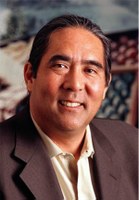
Arthur Gen “A.G.” Kawamura, a third-generation fruit and vegetable grower and shipper from Orange County, is a visionary leader working to ensure the sustainability of agriculture in California and throughout the world. He is being honored as a “Friend of the College” with a 2011 CA&ES Award of Distinction.
Kawamura served as Secretary of the California Department of Food and Agriculture from 2003 to 2010. In that capacity, he stressed the need to invest in the “pillars” of food security infrastructure—applied scientific research, pest and disease management, water system development, renewable energy, transportation, postharvest storage, and processing. In 2008, he asked the State Board of Food and Agriculture to develop a stakeholder-driven strategic plan called “Ag Vision” to ensure that “the agricultural fabric of our state remains dynamic and sustainable.”
As co-chair of the Solutions from the Land dialogue, Kawamura is now playing a pivotal national role in helping integrate agriculture and conservation policy. The project, supported by the United Nations Foundation, Conservation International, the Nature Conservancy, and the Farm Foundation, is developing a “roadmap” for sustainable agricultural systems. He also was recently appointed to an agriculture and natural resources board for the National Academy of Sciences.
Kawamura is active with many other agriculture organizations such as the American Farmland Trust. He is a past chairman of Western Growers Association, a past president of Orange County Farm Bureau, and is a graduate of the California Agricultural Leadership Program. His career began as a beekeeper, roadside stand operator, and produce salesman. Kawamura and his brother farm 1,000 acres for Orange County Produce, LLC, a company founded by his father and grandfather.
Kawamura has served on a number of UC Davis advisory boards, including those for the Agricultural Sustainability Institute and the Center for Nutrition in Schools. He is a frequent and popular speaker at UC Davis events, including the CA&ES commencement in 2007. His connection to UC Davis goes back to his freshman and sophomore days as an agricultural economics major before transferring to UC Berkeley. In January, Kawamura will join the CA&ES Dean’s Advisory Council.
Margaret A. Lawson
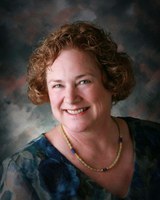
Margaret A. Lawson, chief science officer for food-industry leader D.D. Williamson, has excelled as an industry professional, a mentor to aspiring food science students, and a loyal ambassador for UC Davis. She is being honored among “Outstanding Alumni” with a 2011 CA&ES Award of Distinction.
Lawson developed a love of chemistry at an early age and quickly became enchanted with the multidisciplinary food science and technology program at UC Davis. She earned her bachelor’s degree with highest honors and her master’s degree, both in food science and technology. After graduation she strategically selected companies and positions with global responsibilities to allow her the opportunity to see the world, get to know different cultures, and experience nature through adventure travel. She has enjoyed assignments in China, Latin America, Europe, Ireland, and New Zealand.
In the early years of her career in product development and as a research chemist, Lawson developed an expertise in food ingredient technology. She has co-authored several patents. Lawson later entered management and took on responsibilities for research, quality assurance, customer interface, and manufacturing. With D.D. Williamson, a provider of caramel and natural colors for foods and beverages, she interacts with global customers on technical, quality, and regulatory subjects. She also directs technical efforts in science and innovation and leads product development projects for custom color solutions, food product stabilization, authentic flavor perception, food safety, and regulatory compliance.
Lawson’s enthusiasm for food science has made her a dynamic communicator and champion of the profession worldwide. Since her days as a UC Davis student, she has been active with the Institute of Food Technologists (IFT), a professional organization promoting standards of quality, safety, and supply of food and food ingredients. Lawson served as IFT president (2005–2006) and was named a fellow of the organization. Her philanthropic support has helped UC Davis students attend IFT’s annual meeting and provided funding for the food science and technology department’s student lounge. She serves on leadership boards for the Department of Food Science and Technology, and on the board of executives for the Robert Mondavi Institute for Wine and Food Science.
Barbara Schneeman
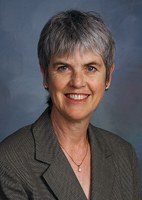
Barbara Schneeman, UC Davis professor emerita, former CA&ES dean, and current director of the Office of Nutrition, Labeling, and Dietary Supplements at the U.S. Food and Drug Administration (FDA), is an internationally known leader in the development of dietary guidelines and nutrition policy. She is being honored among “Outstanding Alumni” with a 2011 CA&ES Award of Distinction.
Schneeman received her bachelor’s degree in food science and technology from UC Davis and her doctoral degree from UC Berkeley in nutrition. She did her postdoctoral training at Children’s Hospital in Oakland, and then joined the UC Davis faculty in 1976. She was a professor and chair in the Department of Nutrition and held joint appointments in the Department of Food Science and Technology, and the Department of Internal Medicine in the School of Medicine. As dean of the College of Agricultural and Environmental Sciences (1993–1999), Schneeman skillfully guided the college through a time of challenging budget constraints, administrative restructuring, and academic and strategic planning. In addition to her leadership as dean, Schneeman served as associate vice provost for University Outreach (2001–2004) and as an administrator in the USDA Agricultural Research Service (1999–2000).
At the FDA, Schneeman oversees development of policy and regulations for dietary supplements, labeling and food standards, infant formula, and medical foods, and represents the United States on two Codex Alimentarious committees. She twice served on the Dietary Guidelines for Americans Committee. At the Institute of Medicine of the National Academies, she was a member of the Food and Nutrition Board and chaired committees on dietary supplement safety and on nutritional issues for women in the military. She was a consultant for the Food and Agriculture Organization of the United Nations and served on the California State Board of Food and Agriculture; the USDA Research, Extension, and Education Advisory Board; and on committees for the American Society for Nutrition and the Institute of Food Technologists. Schneeman has received numerous awards for research and leadership, and has published extensively on her areas of expertise—gastrointestinal function, dietary fiber, lipid metabolism, and food-based dietary guidelines. “I value and take pride in this work,” she says, “because it results in putting our research into practical advice for the public.”
Mahmoud El-Solh
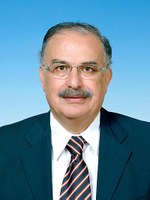
Mahmoud El-Solh, director general of the International Center for Agricultural Research in Dry Areas (ICARDA), has devoted his career to increasing food security, alleviating poverty, and promoting sustainable agricultural systems in the developing countries of western Asia and northern Africa. He is being honored among “Outstanding Alumni” with a 2011 CA&ES Award of Distinction.
A native of Lebanon, he earned his bachelor’s and master’s degrees at the American University in Beirut. El-Solh came to UC Davis in 1975 and studied the genetics of lima beans, earning his doctoral degree in 1978. As a scientist, he developed expertise in agricultural systems, genetic resources conservation, food legume breeding, and other areas. As an administrator, El-Solh has developed a reputation as a diplomat with the rare ability to navigate practical ways through complex situations while never losing sight of the importance of agricultural research in increasing productivity and reducing poverty.
ICARDA is one of 15 research and teaching centers strategically located around the world that is supported by the Consultative Group on International Agricultural Research (CGIAR). Its mission is to improve the welfare of poor people in dry areas of the developing world by increasing the production, productivity, and nutritional quality of food, while preserving and enhancing the natural resource base. One of the center’s core functions is the improvement of staple food crops, including wheat, barley, and food legumes—lentil, chickpea, and broad bean.
Since 2006, El-Solh has been director general of ICARDA. The center is based in Aleppo, Syria, and is staffed by scientists from more than 50 countries. Over the years he has served the organization as a lentil breeder in Syria, food legumes scientist in Morocco, coordinator of the center’s Nile Valley and Red Sea region, and as Director for International Cooperation.
In the 1980s, El-Solh was a professor of agronomy and plant breeding at the American University in Beirut. He also served as director of the Plant Production and Protection Division at the Food and Agriculture Organization of the United Nations from 2002 to 2006. He has accumulated an impressive record of scientific publications in plant breeding and international agriculture, with more than 120 papers, articles, books, and book chapters.
William P. Sullivan
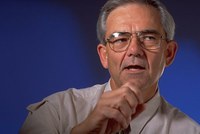
William “Bill” Sullivan, president and chief executive officer of Agilent Technologies, has been leading breakthrough innovations in high-tech electronics for more than 35 years. He is being honored among “Outstanding Alumni” with a 2011 CA&ES Award of Distinction.
Sullivan earned his bachelor’s degree in environmental planning and management from UC Davis in 1972. While continuing studies in electronics, he joined Hewlett-Packard Co. in 1976. That same year, he married his best friend, Linda Sullivan. Together, they raised two daughters.
As a research and development manager and general manager at Hewlett-Packard, Sullivan guided the company to leadership in low-cost data transmission in optical, microwave, and radio frequency technologies. He led a “Six Sigma” quality program that enabled Hewlett-Packard to compete and win in Japan, and enabled the company to commercialize the world’s first optical mouse.
In 2005, six years after Hewlett-Packard spun off its legacy measurement business to form Agilent Technologies, Sullivan was named president and CEO of Agilent Technologies. He is proud of transforming the company from historical electronic measurement leadership into analytical measurement leadership, with a focus on agricultural, petrochemical, environmental, and life sciences. Today, Agilent is considered one of the world’s premier measurement companies. Sullivan serves on the boards of electronics distributor Avnet, Inc. and the construction firm URS Corporation.
Sullivan and his wife are active in community and education programs. He serves on various university advisory boards, including the Georgia Technology School of Engineering, the Johns Hopkins Carey School of Business, and the UC Davis Campaign Cabinet Committee. He is chairman of the board for the Children’s Discovery Museum in San Jose.
Sullivan’s personal involvement and commitment have helped sustain a long-term business partnership between Agilent and UC Davis for research collaboration in areas such as food safety, life sciences, and electronics. He believes his UC Davis education provided him with “the foundation for a lifetime of learning”—critical skills he still uses today. Bill and Linda Sullivan continue to support UC Davis students with the William and Linda Sullivan Environmental Sciences Scholarship Fund.
Larry N. Vanderhoef
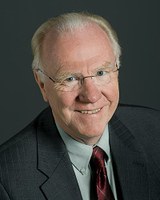
Larry Vanderhoef, chancellor emeritus of the University of California, Davis, led the remarkable growth and development of the campus for a quarter century. He is being honored as “Outstanding Faculty” with a 2011 CA&ES Award of Distinction.
Vanderhoef joined UC Davis in 1984 as executive vice chancellor and provost. In 1994 he was appointed the fifth chancellor and served in that capacity until retiring in 2009. On Vanderhoef’s watch, the campus has grown and prospered. In 1996, UC Davis was invited to join the prestigious Association of American Universities, representing the top 62 research universities in North America. Research funds, won competitively by faculty, increased from $169 million to $622 million annually. Private gifts increased from $40 million to more than $200 million per year. Six million square feet of classroom, lab, clinical, performance, and office space were added. Student enrollment grew from 22,000 to more than 31,000, while the faculty number increased by 44 percent. And Sacramento County’s troubled hospital was transformed into the academically distinguished and financially sound regional UC Davis Medical Center.
In 2004 Vanderhoef led a UC Davis delegation to Iran to promote dialogue, scholar exchange, and greater understanding and good will. He returned to Iran in 2008 with a small delegation of university presidents. In 2009 he was awarded the “outstanding community award” from the Council on American-Islamic Relations. Among his many accolades, Vanderhoef was chosen by the Sacramento Business Journal as one of the 20 people who have contributed most substantially to California’s capital region over the past 20 years. Valley Vision presented him with its 2009 Legacy of Leadership Award.
Vanderhoef continues to be active in campus life and in public service. He developed a course, Biology for Non-Science Majors, and taught it this spring. He serves on boards for the Robert and Margrit Mondavi Center for the Performing Arts and the School of Education, and on an advisory committee on institutional quality and integrity for the U.S. Secretary of Education. Vanderhoef is writing a book about his experiences as provost and chancellor.
Larry Vanderhoef holds bachelor’s and master’s degrees in biology from the University of Wisconsin, Milwaukee, and a doctoral degree in plant biochemistry from Purdue University.